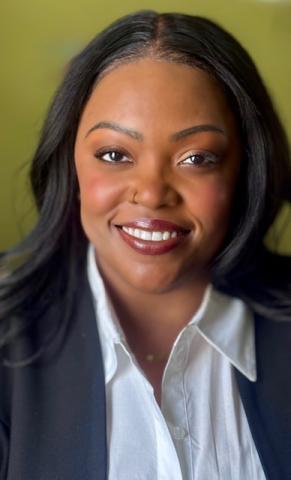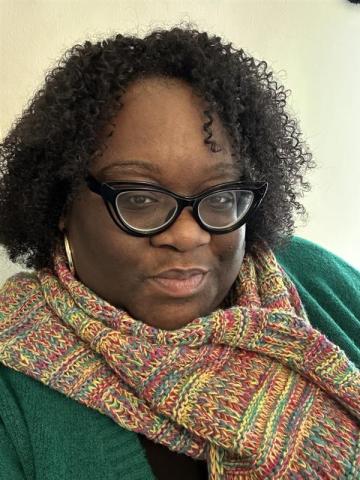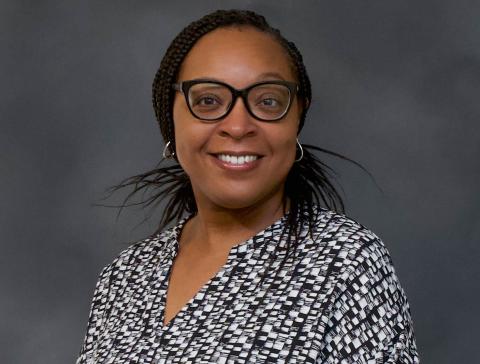
Meet our new Director of Development
Q&A with Christina Bauer, CFRE
Christina first joined Health Care for the Homeless in 2010. A native of Rochester, NY with a bachelor’s degree from Northeastern University, Christina is an experienced fundraiser and relationship-builder. In her initial events role, she helped to create the first Rock Your Socks 5K and shape The Chocolate Affair. During the last seven years working in major gifts, she has engaged new donors and brought many corporate/foundation partners into the work. Get to know more about Christina and what's ahead for the Development Department here!
How did you get your start at Health Care for the Homeless?
I first started in May of 2010 as a full time Development Associate focused on events. My background was in event planning, and I was excited for an opportunity to be a part of an organization whose mission fit my personal values. I LOVED the position, my team, the mission and the HCH community. I spent most of my time on The Chocolate Affair, events for staff and volunteers, third party fundraisers and helping to create the Rock Your Socks 5K experience.
I left the organization for about a year and a half to get some management and sales experience but couldn’t stay away long. When Kevin Feldt reached out with a new fundraising position, I jumped at the opportunity to apply.
I have been fundraising for the organization since January 2016. I look forward to growing my career here as Director of Development and sharing the incredible work of Health Care for the Homeless with so many.
What are the key Development goals for the year?
As always, there are real financial goals we set and must reach to maintain the level of care we provide at our clinics every day. In Development, we raise funds for everything from general operating costs to program-specific work like the Dental Program, the Pediatric and Family Clinic, and Client Assistance—basically everything that isn't covered by billable services or public grants. The budgets set for these programs assume the Development team will be able to raise around 2.5 million dollars.
We’re also focused on growing our community of supporters—working to increase attendance at events, the number of monthly donors, participation in our endowment, and how well we retain donors year after year.
What are some changes you’re excited to bring to the department?
Well, I am bringing back our Thank-a-Thon events this year! This is where staff and volunteers come together one or two evenings throughout the year just to call and say thank you to our donors. I want to bring Development Committee members into more face-to-face opportunities like donor meetings and engagement events, too.
How can people reading this get more involved in Development projects?
I always want more feedback from donors, attendees, staff, clients and volunteers—What are we doing well? What would you like to see change? What new ideas do you have? Jot me a note!
Stories are a big part of how we connect with our supporters—sharing more about your experience with Health Care for the Homeless is important. Additionally, Communications and Development have been revising the storytelling process through an REI lens for a few years now, highlighting voices of providers and clients and sharing their experiences. Through standing columns like "Pass the Mic" and "Day in the Life", we give storytellers more control over the narrative, and across stories intentionally call out power structures that create and exacerbate homelessness.
I want to involve more staff members in fundraising efforts, too—so expect to hear from my team about spending more time in committee meetings or meeting directly with program staff to learn more about your work.
And we’re always looking for volunteers for agency events. We absolutely need more Rock Your Socks 5K runners and fundraisers, too!
Over the last few years, the Development Department has started to shift to what's called "Community-Centric Fundraising". What exactly is that and HOW DOES IT RELATE TO OUR GOALS FOR RACIAL EQUITY AND INCLUSION?
Community-centric fundraising (CCF) has changed how we view fundraising; it focuses more closely on how we reduce harm and ground fundraising in racial and economic justice. We are doing more to highlight the systemic root causes of homelessness in our appeals and in our conversations with donors, which helps shift the narrative toward giving as social justice—not charity.
When looking at our fundraising strategy, we are considering the needs, interests, and motivations of all stakeholders—clients, staff, volunteers, the broader Baltimore community—instead of just the needs of individual donors. Before sending out any materials or sharing the story of a provider or client, we consider who is benefiting by sharing this story and who could potentially be harmed by it. We have always made it a point to recognize donors, but now we are recognizing partners for their time, financial support and personal or professional expertise. Every member of this effort is important in creating a more equitable community.
The Chocolate Affair this year was a great example of this shift: an event that was traditionally a gala with $250 tickets is now a community- and mission-focused night at the movies where you “pay-what-you-can” to attend. This shift maintained revenue goals and made the experience much more accessible and inviting.
What is your favorite way to destress outside of the office?
Going for a run with a great playlist or playing with my two kids. From pretending to fish off the back of my house or an epic nerf gun battle, there is no To-Do list with them – just fun!
Congratulate Christina next time you see her, and look out for the next HCH Thank-a-thon!
More Recent News
We are thrilled to welcome Nikia Woodard, our new Director of Human Resources! With more than two decades of experience in the HR field, Nikia previously held leadership roles with the Maryland Transit Administration, Unified Women’s Healthcare and a behavioral health residential treatment facility for youth in Baltimore. Most recently, she served as Director of Employee Experience & Organizational Development at Loyola University Maryland, implementing university-wide professional development programs and encouraging a culture of continuous learning. Read on to learn more about Nikia (and her favorite snack)…
After a year of serving as Practice Manager of West Baltimore, Alkema Jackson is moving into the new role of Director of Practice Operations, Community Sites! She joined Health Care for the Homeless in 2022 as the Client Access Project Coordinator, collaborating across departments to help more people connect to agency services, and in 2023, she received a Core Value Award for Hope. Read on to learn more about Alkema’s approach to this new position…
Meet Christana Greene, our new Director of Compliance! With more than five years in the compliance field—most recently as Senior Quality and Patient Safety Specialist at GBMC Healthcare—Chrissy brings frontline insight to the role. She began her career as a medical assistant, gaining firsthand experience in what it takes to keep care safe and operations running smoothly. In her new role, Chrissy is focused on building a compliance culture grounded in safety, integrity and accountability. Read on to learn more about Chrissy...
Baltimore gets dangerously cold, and too many of our neighbors are out there. Here are three simple things you can do to make a difference in someone’s life this winter.




